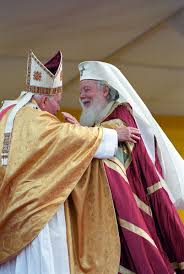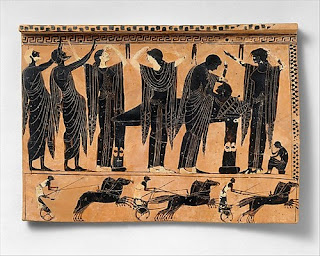The Sixth Sunday after Pentecost, Proper 9, 5 July 2015

The Sixth Sunday after Pentecost, Proper 9, 5 July 2015 II Samuel 5:1-5, 9-10 Psalm 48 Or Ezekiel 2:1-5 Psalm 123 II Corinthians 12:2-10 St. Mark 6:1-13 Background: The Great Schism The schism between the Eastern Church and the Western Church took many centuries to develop but came to a head in 1054 CE. The issues largely centered on the liturgical/theological issues of the filioque in the Creed (the question as to whether the Holy Spirit proceeded from the Father and the Son), the use of unleavened bread in the west, the papal claim to universal jurisdiction, and the role of Constantinople as a patriarchal see. Such issues were not absent political considerations as well such as the presence of the Normans in southern Italy, and their subsequent conquest of that territory. The loss of the loss of the patriarchates of Alexandria, Antioch, and Jerusalem to Muslim forces in 661 CE, and the increase of Constantinopolitan power also added to the political d...
